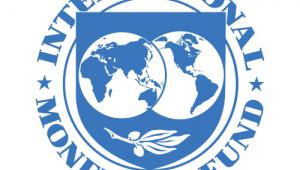Austerity measures imposed on countries by the IMF when they lend money leaves nations with little money for public services, a study by the European Network on Debt and Development found.
Gino Brunswijck, author of the report and senior policy and advocacy officer at Eurodad, said: “In many countries, such as Chad and Gabon, austerity measures imposed by IMF loans have sparked cuts to the health sector, which has had a grave impact on health service delivery and personnel.
“Furthermore, the social spending floors that are part of IMF programmes, and that are supposed to shield vulnerable groups, are at levels below what is needed to guarantee basic healthcare. This makes it difficult for countries to reach the Sustainable Development Goals in relation to health.”
The SDGs are 17 goals set up by the United Nations and include ending worldwide poverty and hunger as well as combating climate change.
The report revealed that in eight countries, debt services costs as a share of the total budget are higher than health spending, implying that debt relief could have freed up fiscal space for poor countries to invest “substantially more” in health services.
It found that out of 26 countries that received loans, the IMF had imposed on average 26.8 conditions, many of which directly or indirectly affect government’s capacity to provide public services.
Brunswijck added: “In 20 out of the 26 countries that received IMF loans in the period studied, people have gone on strike or taken to the streets in protest against government cutbacks, the rising cost of living, tax restructuring or wage reforms resulting from IMF loan conditions.
“Our research shows that most of these countries are repeat borrowers from the IMF, which suggests that programmes are often ineffective, or even counter-productive, when it comes to resolving debt crises.”
The report also found that 23 out of the 26 programmes examined are conditional on fiscal consolidation, leading to austerity. This means a majority of countries are required to restrict their spending and sometimes increase taxes because of the loans.
Brunswijck said: “Instead of promoting fair and sustainable solutions, the IMF is ramping up its conditions and intruding into policy areas that are normally the domain of democratic decision-making for the good of a population.
“By doing so, the IMF protects and bails out creditors, and puts the burden of adjustments on vulnerable people.”
The IMF has been contacted for comment.







